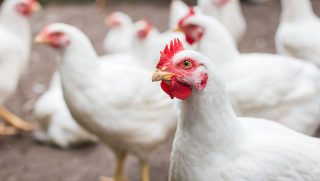Sorghum is a nutrient-dense, flexible, and delicious whole grin that can be incorporated into meals, including in school. To help integrate the science and production of sorghum into classrooms, the United Sorghum Checkoff has launched its first Farm-to-School Curriculum.
“We are thrilled to provide teachers with comprehensive materials that incorporate various aspects of sorghum into subjects from STEM to Language Arts,” Sorghum Checkoff Director of Food Innovations & Institutional Markets, Lanier Dabruzzi MS, RD, LD said. “This initiative underscores our commitment to agriculture education and our goal to inspire the next generation to recognize and utilize the potential of sorghum in their lives and the world around them.”
The curriculum provides educators with an array of engaging resources that introduce students to the importance of sorghum as a sustainable, versatile and flavorful grain that can be enjoyed in a variety of ways. The program also aims to ignite the passion for agriculture in the next generation, cultivating an understanding and appreciation for sorghum.
“The focus on Farm-to-School is an exciting addition to our educational outreach,” Sorghum Checkoff Executive Director, Norma Ritz Johnson said. “It serves as a remarkable resource for teachers, providing lesson plans and activities that conform to National Science and Common Core State Standards. We believe this curriculum will not only spark students’ interest in sorghum, but also inspire them to explore careers in agriculture. By introducing children to sorghum and its multitude of benefits early in their developmental years, we hope to cultivate a long-lasting appreciation for this crop. This early exposure aims to foster a new generation of consumers who are well-informed about the source of their food and cultivate a love for sorghum-based foods.”
The Sorghum Farm-to-School curriculum engages students of all grade levels, from Kindergarten to 12th grade, through experiential learning. Tailored modules for elementary, middle, and high school students offer rich, multisensory experiences.
Students grow and taste sorghum and explore various subjects by writing about and applying their knowledge of this versatile grain. These learning experiences cover a wide spectrum of educational content, from understanding sorghum’s crucial role in global food security and world nutrition, to exploring its potential as a renewable energy source.
»Related: FFA summers: Members stay involved all summer long


